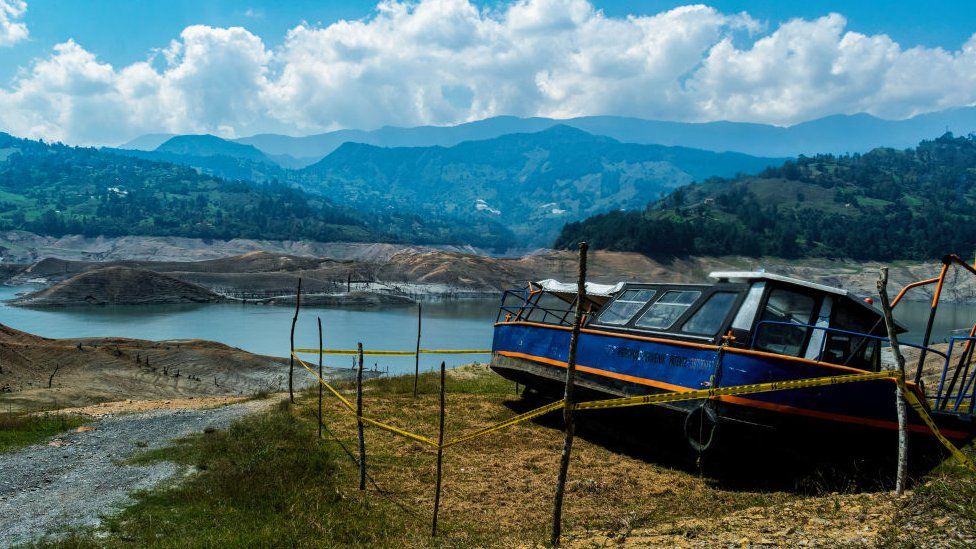Drought causes power cuts in Ecuador
- Published

A severe drought has led to power cuts in Ecuador, which relies on hydroelectrical sources for much of its power.
Energy companies published a schedule of power cuts which has seen the capital and other major cities go without electricity for hours on end.
The drought has already led to water rationing in neighbouring Colombia.
The lack of rain in the Andean region has been linked to the El Niño weather pattern.
On Monday, power companies in Ecuador announced power cuts lasting between two and five hours to ensure less electricity was used.
The energy ministry said Ecuador's power system had been affected by "several unprecedented situations", including a drought, increased temperatures and minimum water levels.
The power shortage has been made worse by Colombia's decision to halt its export of energy to Ecuador in order to prioritise its own needs during the drought.
Last week, Ecuador's energy minister had still ruled out rationing electricity, but after several power cuts over the weekend, which caught residents and businesses by surprise, officials asked energy companies to publish a schedule of planned cuts.
Ecuadorean President Daniel Noboa said the situation had been exacerbated by "saboteurs", but did not provide further details about who may be behind the alleged sabotage.
"Anyone involved will be not only be considered a traitor to the fatherland, but also a threat to national security," President Noboa said.
He also ordered the sacking of the energy minister and appeared to overrule the decision to ration energy, when he said that "we are not going to have more blackouts this week".
The newly appointed energy minister, Roberto Luque, warned there were no "short-term solutions" to solve the country's energy crisis.
In Colombia, the lack of rain linked to El Niño has seen water levels fall close to critical levels in some of the country's main reservoirs.
Most neighbourhoods in the capital, Bogotá, have had their water rationed, while residents have been urged to limit the time they shower to four minutes or less.
People who are deemed to be wasting water by washing their cars have been threatened with substantial fines.
Related Topics
- Published12 April
- Published1 November 2023